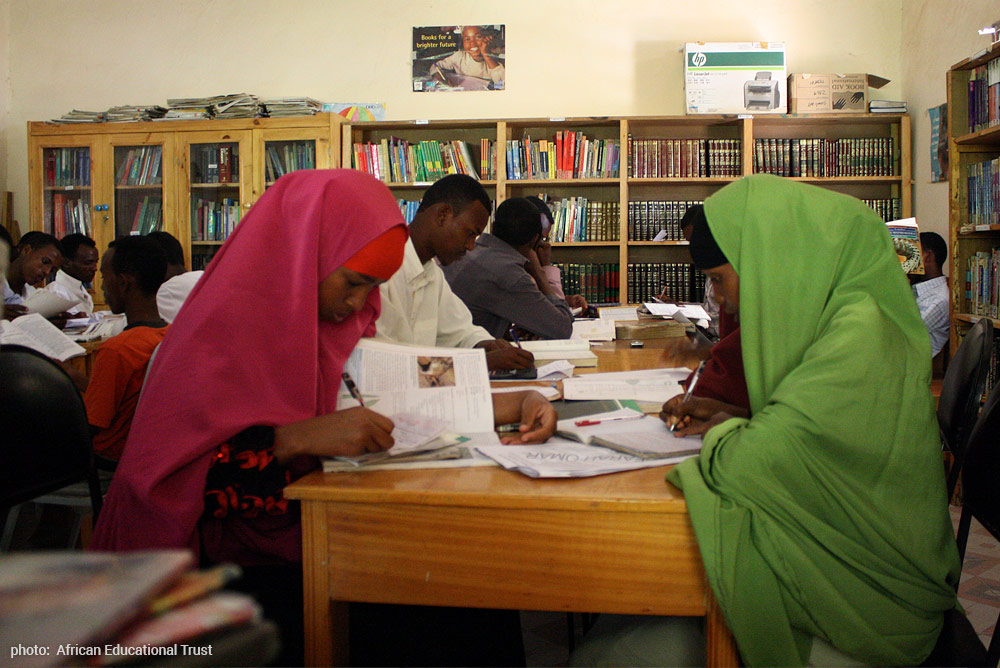A key goal of the International Commission on Financing Global Education Opportunity is “to engage with world leaders to ensure the financing is there to achieve Education For All.” The image this conjures up is of a group of high-level politicians being pressed to divert cash to fund equally high-level or prestigious education initiatives. But this funding is not indiscriminate nor infinite: choices have to be made. The Commission is correct to assert that evidence of impact is crucial. And, contrary to popular assumptions, it is often in the most conflict-affected states that smaller, targeted initiatives can have the most immediate impact.
The Africa Educational Trust (AET) works to support the most disadvantaged or excluded children within some of the most disadvantaged countries of the globe. The funds are modest but the reach is huge: mobile libraries drawn by lorries, motorcycles and donkeys, reaching communities in Somalia, East Uganda and South Sudan. Or radio schools for those who have missed out on school, or are now in Internally Displaced Persons camps, using humorous stories on topical issues to help literacy. It is shocking to learn, for instance, that a girl in South Sudan is more likely to die in childbirth than to finish primary school. Here the training of “school mothers,” individuals who act as mentors and advocates for girls’ education, has enabled 14,000 girls to go to school. Other programmes target disability inclusion, street children and pastoralists – all the most excluded. In addition to direct peace education programmes, there are less obvious props for peace and stability such as exams. When the framework for education collapses, it stops being possible to evaluate someone’s level of learning and generate certification to get jobs. In Somalia, AET supports the re-establishment of recognised exams – enabling 22,000 students last year to sit them, even if this meant delivering the exam papers by a borrowed lorry to get them there in time. With local offices and local staff, AET stays when other agencies pull out – even when their offices are attacked and they have to move.
Global funds for education will have to be diverted from elsewhere. The current climate of extremism means ever-increasing sums are being spent on security. And not just conventional defence: more British troops were deployed in securing the London Olympics than were fighting in Afghanistan at that time. But security is also about securing safer futures for children in fragile contexts so that they are resilient to the effects of poverty and to the radicalisers promising better lives. The task of international organisations is to convince those with funds that the combination of necessarily small-scale but sustained initiatives really can work to interrupt the otherwise relentless cycles of conflict.
Lynn Davies is Emeritus Professor of International Education, University of Birmingham, a Director of ConnectJustice and a Trustee at African Educational Trust.

